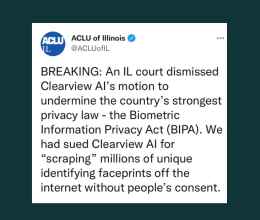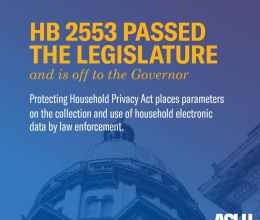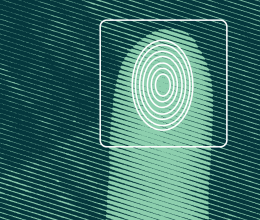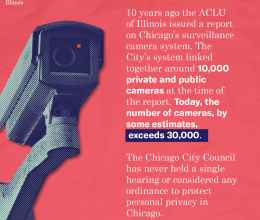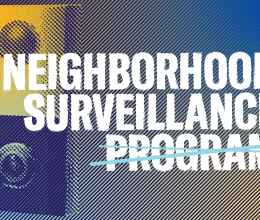
CHICAGO – As part of a massive coordinated information-seeking campaign, the American Civil Liberties Union of Illinois today sent a Freedom of Information Act request to the Chicago Police Department demanding to know when, why and how the CPD is using cell phone location data to track individuals. The request is part of a national campaign directed by the National ACLU, one of the largest coordinated information act requests in American history. The requests, being filed under the states' freedom of information laws, are an effort to strip away the secrecy that surrounds law enforcement use of cell phone tracking capabilities.
“Cell phone location data is an extremely powerful tool,” said Harvey Grossman, legal director of the ACLU of Illinois. “A detailed history of someone's movements is extremely personal and is the kind of information the Constitution protects. For too long, however, the ability of agencies such as the CPD to access cell phone location data has been shrouded in secrecy.”
“The public has a right to know how and under what circumstances their location information is being accessed by the government,” added Grossman.
The ACLU of Illinois specifically asked the Chicago Police Department to provide the following information:
- whether CPD officers demonstrate probable cause and obtain a warrant to access cell phone location data;
- statistics on how frequently CPD obtains cell phone location data;
- how much money CPD spends tracking cell phones; and,
- other policies and procedures used by CPD for acquiring location data.
The use of cell phone location data by law enforcement agencies has been widespread for many years, although it has become increasingly controversial recently. Just last week, the general counsel of the National Security Agency suggested to members of Congress that the NSA might have the authority to collect the location information of American citizens inside the U.S. This spring, researchers revealed that iPhones were collecting and storing location information in unknown files on the phone. And, police in Michigan recently sought information about every cell phone near the site of a planned labor protest.
The U.S. Supreme Court recently agreed to decide whether police need a warrant to place a GPS tracking device on a person's vehicle. While that case does not involve cell phones, it could influence the rules police must follow for cell phone tracking.
Against this backdrop, Congress is considering the Geolocation Privacy and Surveillance Act, a bill supported by the National ACLU requiring police to get a warrant to obtain personal location information. The bill protects both historical and real-time location data, and requires customers' consent for telecommunications companies to collect location data.
